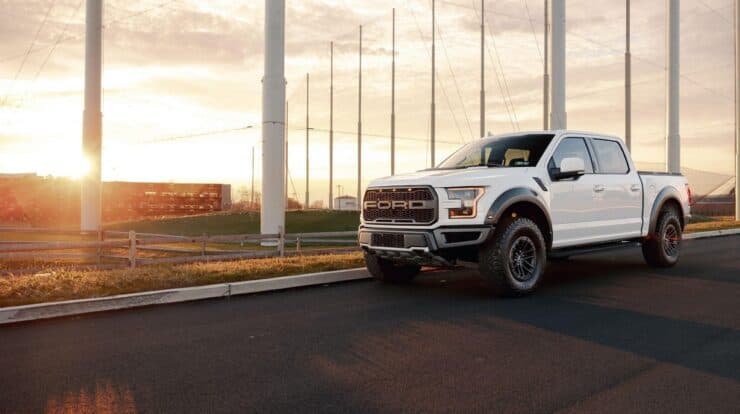
In today’s competitive automotive market, effective dealer marketing is essential for attracting and retaining customers. This comprehensive guide explores various strategies and tools that automotive dealers can use to enhance their marketing efforts, ensuring they stand out in a crowded marketplace.
The automotive industry has evolved significantly, with digital platforms becoming increasingly crucial in marketing strategies. Platforms like ABB car auction exemplify the integration of digital solutions in automotive sales, showcasing how online presence can augment traditional dealership models.
Understanding Automotive Dealer Marketing
Automotive dealer marketing involves promoting and selling vehicles to potential customers. It encompasses a range of activities, from advertising and promotions to customer relationship management. The goal is to create a unique brand identity that resonates with the target market.
Digital Marketing Strategies
1. Website and SEO: A dealer’s website is often the first point of contact with customers.Optimizing the website for search engines (SEO) ensures higher visibility.
2. Social Media Marketing: Platforms like Facebook, Instagram, and Twitter allow dealers to engage with customers, showcase their inventory, and build brand loyalty.
3. Email Marketing: Sending personalized emails to potential and existing customers can be an effective way to promote new models, deals, and services.
4. Online Advertising: Pay-per-click (PPC) advertising and display ads can drive traffic to the dealer’s website and generate leads.
Offline Marketing Strategies
Community Involvement
Participating in local events and charities can enhance a dealership’s reputation and visibility in the community. Local Events and Sponsorships: Participating in or sponsoring local events, sports teams, or community projects can significantly raise a dealership’s profile. This approach not only increases visibility but also builds goodwill within the community. Charitable Initiatives: Engaging in charitable activities or partnering with non-profit organizations can position a dealership as a responsible and community-oriented business. This could involve hosting charity drives at the dealership or donating a portion of sales to local causes. Educational Partnerships: Collaborating with schools and educational institutions for automotive-related programs or internships can enhance brand image and foster future customer relationships.
Traditional Advertising
TV, radio, and print ads still play a role in creating brand awareness and reaching audiences not active online. TV and Radio Commercials: Despite the rise of digital media, TV and radio ads still have a broad reach, especially among certain demographics. Creating engaging and memorable commercials can boost brand recognition. Print Media: Advertising in newspapers, magazines, and automotive journals can target specific local or niche audiences. Print ads are also effective for promoting special deals, new arrivals, and events. Billboards and Outdoor Advertising: Billboards and other forms of outdoor advertising can be strategically placed in high-traffic areas to increase visibility and brand awareness.
Referral Programs
Encouraging word-of-mouth through referral programs can be a powerful marketing tool. Word-of-Mouth Promotion: Encouraging satisfied customers to refer friends and family can be an effective way to attract new business. Personal recommendations often carry more weight than traditional advertising.
Customer Experience and Relationship Management
Quality Customer Service: Providing exceptional service is crucial for customer retention and reputation. Dealerships that prioritize customer service create a positive buying experience, leading to repeat business and positive word-of-mouth. This includes everything from the initial greeting to post-sale support.
Loyalty Programs: Rewarding repeat customers can encourage long-term loyalty. Implementing loyalty programs, such as discounts on services or points for purchases, can incentivize customers to return. These programs not only foster loyalty but also provide data that can be used for personalized marketing.
Feedback and Reviews: Actively seeking and responding to customer feedback can improve service and build trust. This includes managing online reviews and customer surveys. Constructive feedback should be used to refine business practices, while positive reviews can be leveraged in marketing materials. Actively engaging with customers on these platforms shows that the dealership values their opinions and is committed to continuous improvement.
Data-Driven Marketing and future technological trends are reshaping the landscape of automotive dealer marketing, offering innovative ways to connect with and understand customers.
Data-Driven Marketing
Utilizing data analytics to understand customer behavior and preferences allows dealers to tailor their marketing strategies effectively. This involves harnessing the power of data collected from various customer touchpoints to gain insights into purchasing patterns, preferences, and behaviors.
- Segmentation and Targeting: By analyzing customer data, dealers can segment their market and create targeted marketing campaigns that speak directly to the needs and interests of different customer groups.
- Customer Journey Analytics: Tracking and analyzing the customer journey from initial interest to purchase provides invaluable insights into which marketing strategies are most effective at different stages.
- Predictive Analytics: Using historical data, dealers can predict future buying trends and customer behavior, allowing them to be proactive in their marketing and sales strategies.
Future Trends in Automotive Dealer Marketing
Future Trends in Automotive Dealer Marketing are rapidly evolving, driven by technological advancements. These emerging technologies are set to revolutionize the way dealerships interact with customers and market their vehicles.
Virtual Reality (VR) and Augmented Reality (AR):
- Immersive Showrooms: VR and AR can create virtual showrooms where customers can explore vehicles in a highly realistic and interactive environment from anywhere. This technology provides a unique and engaging way for customers to view and experience car models without the need to visit a physical showroom.
- Virtual Test Drives: These technologies allow customers to experience a virtual test drive, providing a feel for the vehicle without physically being present. This not only adds convenience for the customer but also opens up new avenues for dealers to showcase their vehicles.
Artificial Intelligence (AI) and Machine Learning:
- Personalized Customer Interactions: AI can analyze customer data to deliver highly personalized marketing messages, recommendations, and offers. This level of personalization can significantly enhance the customer experience and increase the effectiveness of marketing campaigns.
- Chatbots and Virtual Assistants: AI-powered chatbots and virtual assistants can provide instant customer service and support, answering queries and guiding customers through the buying process. This technology ensures that customer inquiries are addressed promptly, improving customer satisfaction and engagement.
- Enhanced Lead Scoring: Machine learning algorithms can more accurately score leads, helping dealers prioritize their efforts on the most promising prospects. This optimization of lead management can result in more efficient sales processes and higher conversion rates.
These future trends in automotive dealer marketing, including VR, AR, AI, and machine learning, represent a shift towards more interactive, personalized, and efficient customer engagement strategies. By adopting these technologies, dealerships can stay ahead in the competitive automotive market, offering cutting-edge experiences to their customers.
Conclusion
Effective automotive dealer marketing requires a blend of digital and traditional strategies, a focus on customer experience, and the utilization of data-driven insights. By embracing these approaches, dealers can not only attract more customers but also build lasting relationships with them.


